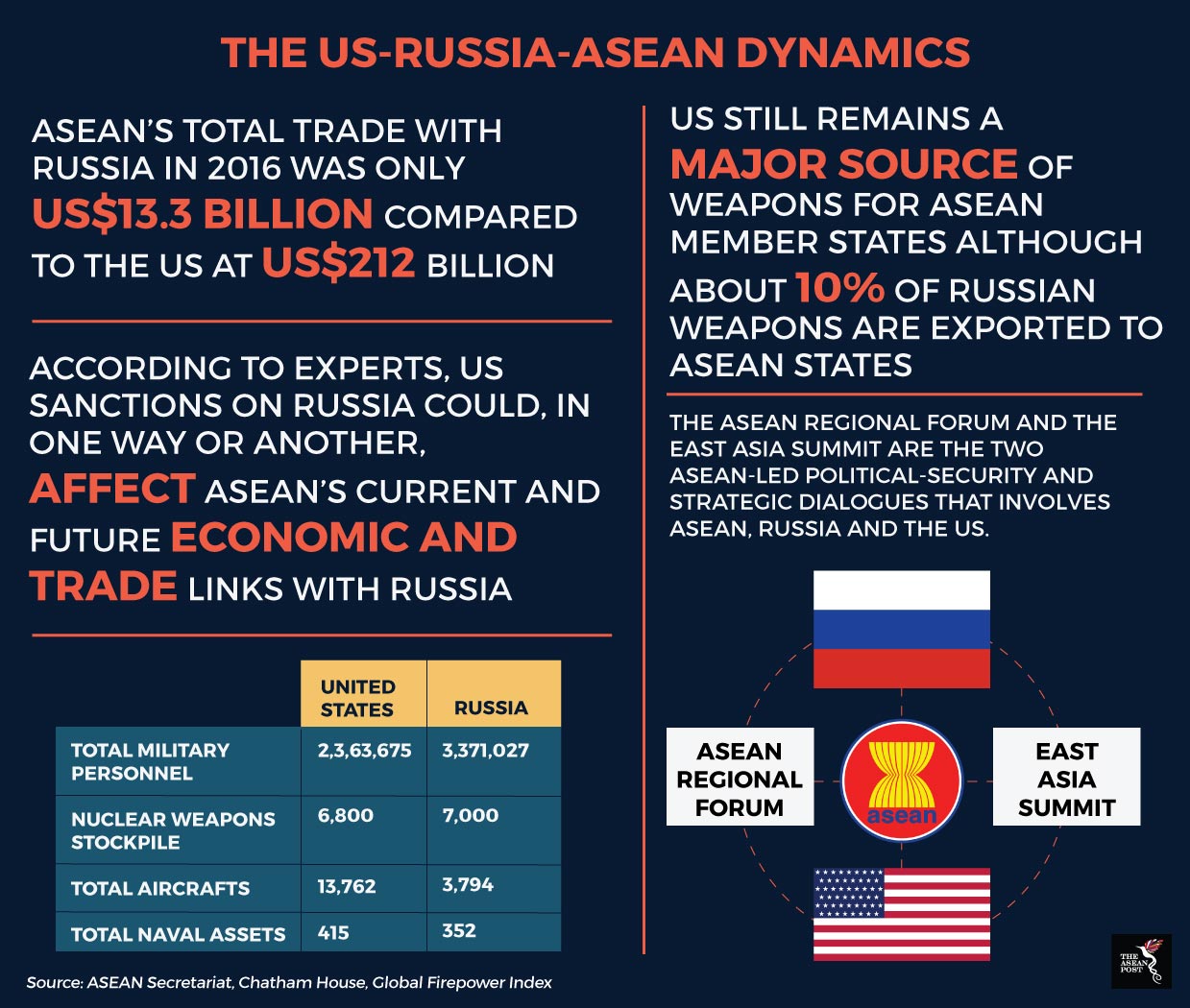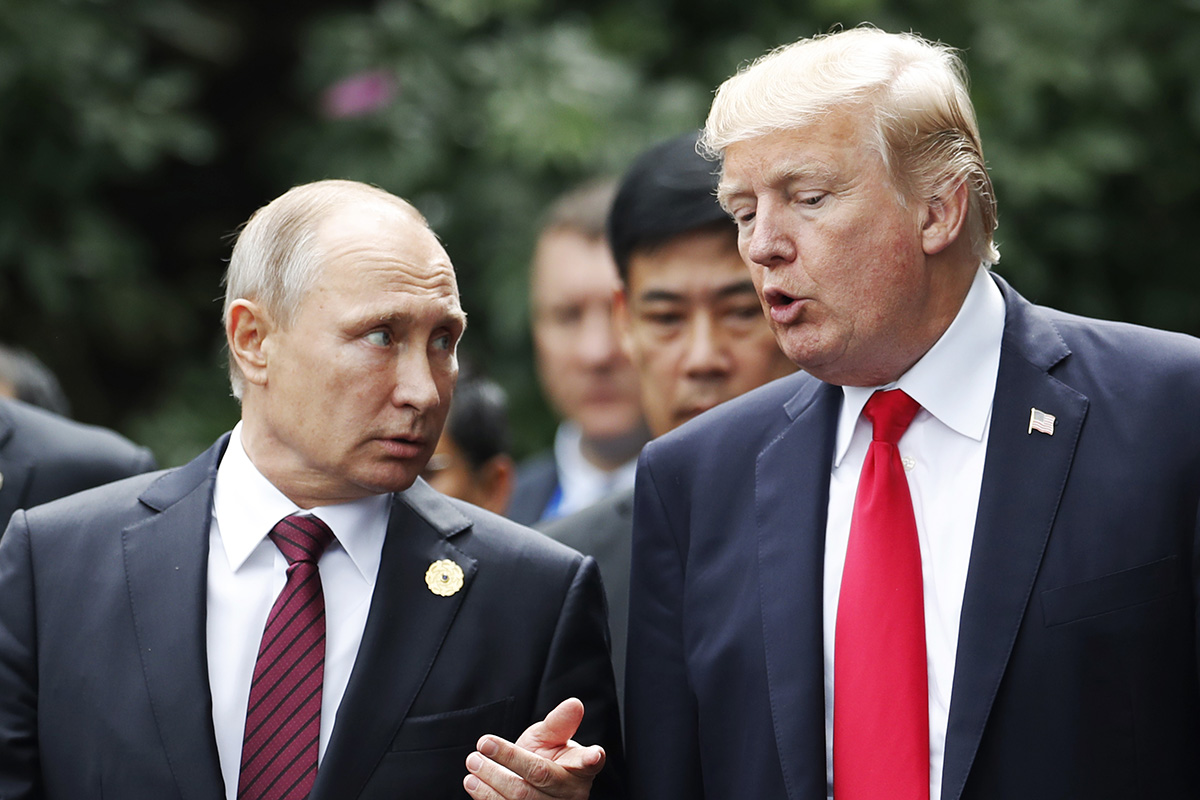The eagle and the bear will never back down from one another. That has been the status quo of US-Russia relations in the postwar era. Despite Trump’s cosy relations with the Russian ambassador to the United States (US) and his relatively soft approach towards sanctioning Russia, the general posture of US foreign policy towards their longstanding rival has been tough.
Relations between the two countries were under the radar once again when the US hardened its nuclear policy stance against Russia recently. The 74-page document lambasted the Russians for their “escalate to deescalate” strategy and purported efforts of modernising their nuclear arsenal. It also outlined economic, military and diplomatic steps in response to Russia’s development of a ground-launched cruise missile system which is in violation of the Intermediate-Range Nuclear Forces Treaty (INF) first signed in 1987.
Besides that, allegations of Russian state sponsored hacking into election campaigns during the 2016 Presidential elections and in the upcoming 2018 mid-term elections have elicited cause for concern especially in the intelligence community. Russian meddling in US elections is a divisive issue in the United States – with the Republicans claiming that this is all a ruse concocted by the Democrats in a bid to slander the current sitting Republican President.
With these latest developments and the shifting dynamics of US-Russia relations, how will it impact member states of the Association of Southeast Asian Nations (ASEAN)?
To sanction or not to sanction?
Sanctions have been the buzzword on Capitol Hill with politicians from both side of the divide pressuring the Trump administration to apply stiffer sanctions on Russia after passing a sanctions bill in July 2017. The New York Times reported that instead of implementing stiffer sanctions, the US released a “name and shame” list of over 200 Russian political and business figures. Russian President, Vladimir Putin has called this an “unfriendly act.”
Perhaps the Trump administration thought that they could be perceived as being hard on Russia by releasing such a list without actually implementing sanctions. But in doing so, he has managed to anger both sides (domestic US and Russia).
Nevertheless, the impact of such intent is similar. The list was intended to paint Russian oligarchs and their businesses in a bad light and the effects of sanctions are self-explanatory.

How this would impact the ASEAN region is based on the severity of these trade based “attacks.” Economic ties between Russia and ASEAN are incomparable to the US. Total ASEAN-Russia trade in 2016 amounted to US$13.3 billion compared to ASEAN-US at US$212 billion.
But these actions could harm Russia’s weapons exports. Asia, is the largest export market for Russian arms. According to a report by Chatham House in 2017, more than half of Russia’s weapons exports from 2000 to 2016 were destined for Asia. Although primarily to India and China, exports to ASEAN countries made up almost 10 percent of the figure with Malaysia, Vietnam, Myanmar and Indonesia on the receiving end.
From a foreign policy perspective, Russia has never been too focussed on Southeast Asia. However, there was a signal of intent of doing so during the 2016 ASEAN-Russia Summit in Sochi. ASEAN leaders were treated to a lavish reception for the two-day summit which ended in a declaration between both parties to forge closer economic, political-security and social ties.
In the bigger picture, Russia may not be a significant player in Southeast Asia but geopolitical events are known to have a domino effect on political situations on the other side of the world. Experts are pointing to the resurgence of a multi-polar world – with actors like the US, Russia and China exerting their own spheres of influence – which could shape the future of global politics.
In any such scenario, ASEAN’s determination in shaping its own destiny cannot be forsaken. Hence, how ASEAN reacts to the shifting dynamics of US-Russia relations will say plenty about the organisation’s future. ASEAN does have significant diplomatic tools in its chest like ASEAN-led institutions – the ASEAN Regional Forum (ARF) and East Asia Summit (EAS) – which brings together both the US and Russia to the same talking table on regional political-security issues.
Christopher Cheang, an expert in ASEAN-Russia relations from the Singapore-based Rajaratnam School of International Studies wrote in a 2017 commentary that, “ASEAN values its current relationship with the US and Russia on all fronts. But it also places a premium on its ability to make decisions on its own, based on the merits of the case(s).”
Recommended stories:
